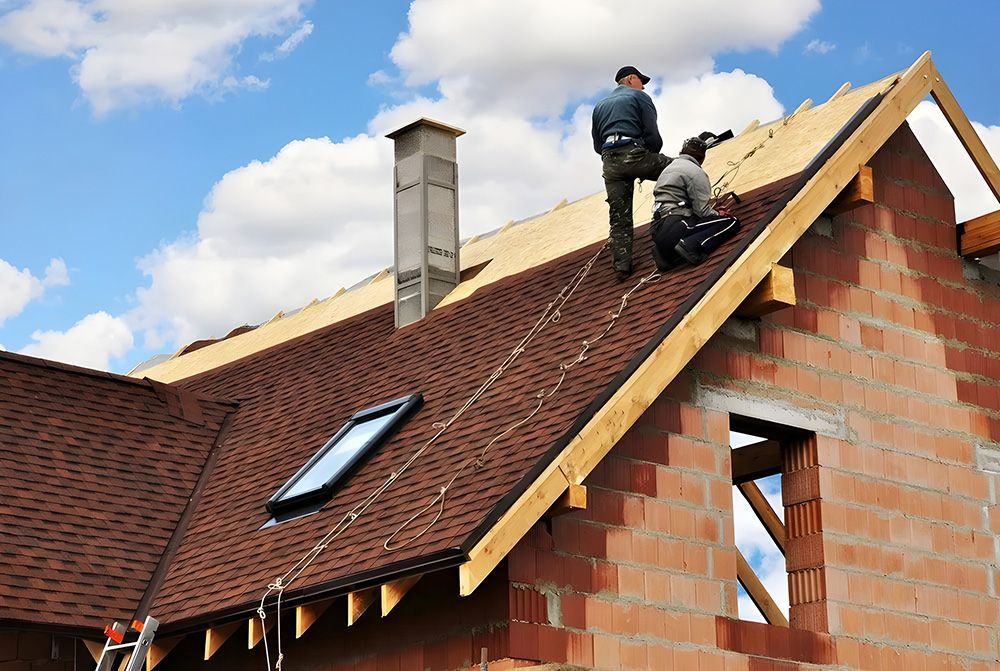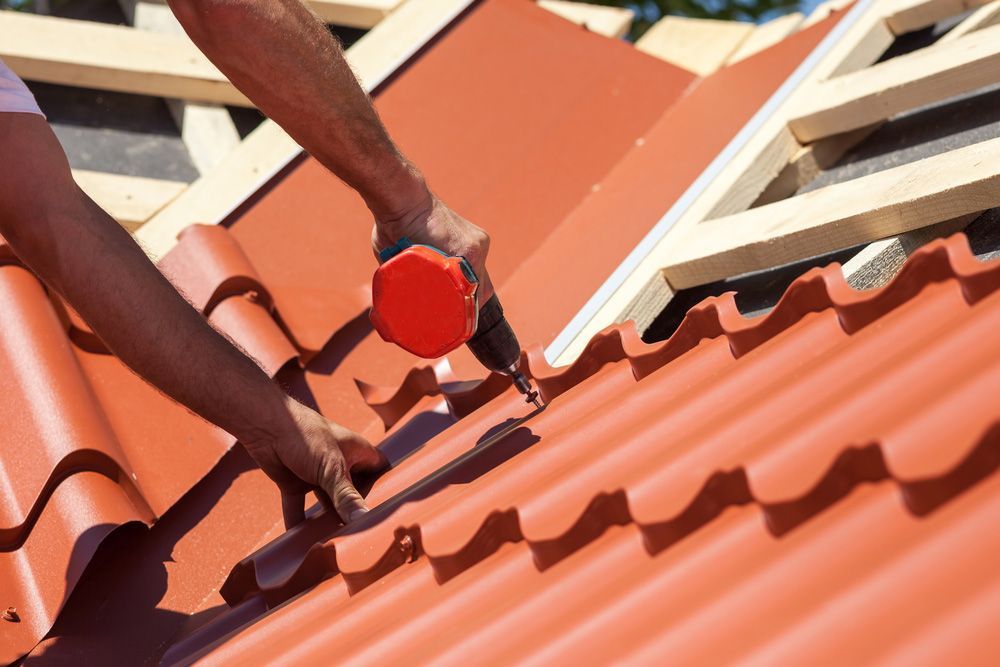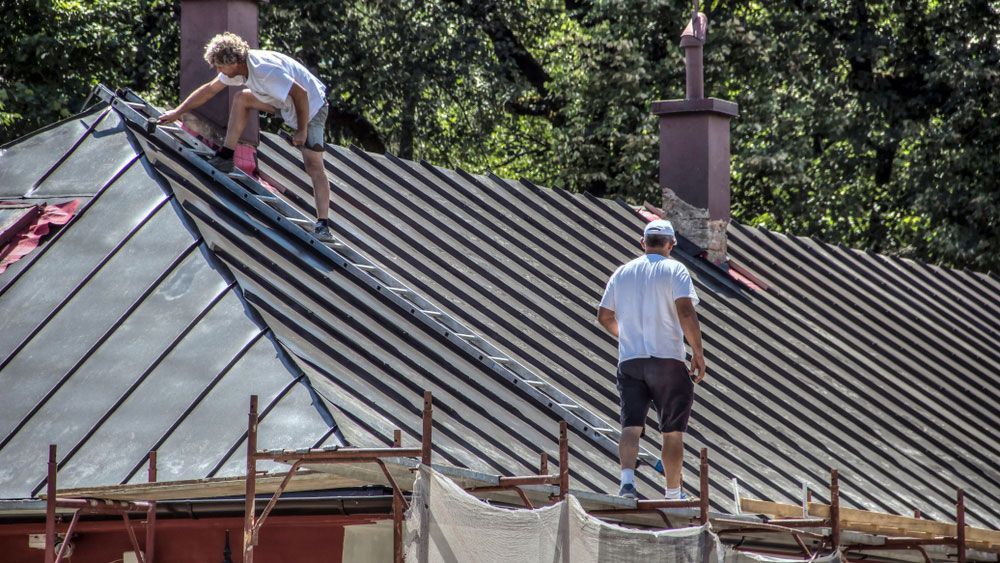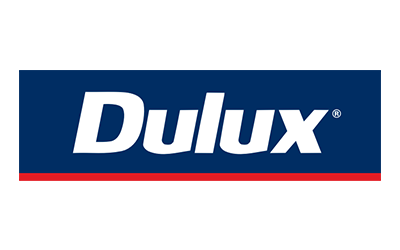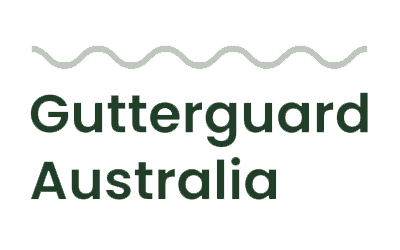8 Signs Your Roof Damage Requires Emergency Repair
A sudden storm, an unexpected leak, or that unmistakable sag in the ceiling — roof emergencies often arrive without warning. Recognising the early warning signs can make all the difference. Acting swiftly not only minimises damage to your home’s structure but can also save you from costly repairs and the stress of water-related disasters. In this guide, we’ll walk you through eight critical signs that mean emergency
roof repair is urgent. When you notice any of these indicators, call a professional roofer straight away — your home will thank you.
1. Water Leaking Through The Ceiling During Storms
If rain is pouring through your ceiling, that’s your roof sounding the alarm. When water penetrates the underlayment and shows up indoors, there’s a direct path for moisture to damage your home’s internal fabric.
- Ceiling panels or plaster softening or bulging
- Drips or steady streams of water during rain
- Damp patches expanding across corners or borders
Emergency action is essential here. Even a small leak can spiral into mould growth, insulation slowdowns, damage to electrical fittings, or even ceiling collapse.
2. Sagging Sections Or Visible Roof Dips
A sagging roof isn’t just unsightly—it’s dangerous. It typically means the structural integrity has been compromised, often due to long-term water infiltration, timber rot, or accumulated debris weighing down the rafters.
- Noticeable concave depression in the roofline
- Cracking or warping of ceiling boards
- Weak or spongy areas that feel unstable underfoot in the attic
If left alone, you risk sudden collapse. A prompt professional evaluation and repair could prevent catastrophic failure.
3. Metal Sheets Or Tiles Blown Off After High Winds
High winds can wreak havoc on roofing materials, particularly in exposed or older areas of the roof. When metal sheets or tiles are lifted, cracked, or completely blown away, they expose the roof’s protective layers underneath, leaving your home defenceless against rain and wind-driven moisture.
- Visible gaps where tiles have dislodged or broken
- Sections of underlay, insulation or battens exposed to the elements
- Uplifted or flapping metal sheeting and flashing, especially at roof edges
Even small areas of exposure can lead to significant internal water damage in a single downpour. Acting quickly to cover or repair these spots can prevent leaks, insulation saturation, ceiling damage and structural deterioration. Emergency repair is critical to secure your home and stop further weather-related impacts.
4. Water Stains On Internal Walls Or Ceilings
Water stains—typically discoloured patches or bubbling or peeling paint—are subtle but telling clues of roof leaks. They often indicate water trickling along beams or ceilings before appearing indoors.
- Yellowish or brown rings on ceilings or junctions with walls
- Peeling or blistering paint or wallpaper
- Softening or staining of plasterboard overhead
Even if there’s no dripping yet, this sustained moisture can lead to widespread deterioration of structure, paint, and wallpaper — calling an emergency roofer helps stop the damage fast.
5. Mould Or Musty Smells In The Attic
Attics are out of sight—and out of mind—until that telltale smell signals trouble. Dampness from undetected roof leaks creates the perfect environment for mould to thrive.
- Musty, earthy odours when entering the attic
- Black or green mould patches on beams or insulation
- Increased respiratory irritation or allergy symptoms indoors
Mould isn’t just unpleasant — it can degrade timber supports and spread into living spaces. A quick inspection and remediation can safeguard your home and health.
6. Flashing Or Roof Edges Visibly Detached Or Missing
Flashing plays a vital role in channelling water away from critical joints in your roof. These thin metal strips are installed around penetrations and along roof edges, acting as barriers to moisture. But when flashing becomes loose, corroded or is completely missing, those once-protected seams become direct pathways for leaks.
- Detached or curling flashing around chimneys, vents or valleys
- Gaps at roof intersections or edges
- Rusted flashing with visible holes or cracks
Without proper flashing, even moderate rain can find its way indoors. Emergency repair ensures tight seals are restored and water is kept out.
7. Guttering Overflowing Or Pulling Away From The Fascia
Your guttering system is designed to direct rainwater safely away from the roof and foundation. But when gutters become overwhelmed, blocked, or start pulling away from the fascia, they can no longer perform effectively. This not only leads to water spilling over the edges but also causes moisture to pool around vulnerable roofline areas — accelerating timber rot, corrosion and eventual leaks.
- Overflowing water during rain despite clear downpipes
- Gutters visibly separated from fascia boards
- Rot or damp stains where the gutter meets the roof edge
Addressing these symptoms quickly protects both the roofing material and underlying supports, averting costly damage to the roofline.
8. A Tree Branch Or Debris Has Fallen Onto The Roof
During storms or high winds, falling tree branches and wind-blown debris can strike the roof with considerable force. While some damage may be obvious, such as cracked tiles or punctured metal sheets, other impacts may leave subtle but serious structural issues beneath the surface. Without immediate inspection, even minor-seeming damage can lead to ongoing leaks, water ingress or weakened roofing elements.
- Visible dents, punctures, or cracks in roofing material
- Loose tiles or displaced sheets near the impact zone
- Interior leaks or drips appearing post-impact
Even if damage seems slight, an expert should assess the area promptly. Hidden fractures can lead to leaks or structural compromise later on.
Get Expert Help for Roof Repairs in Logan
Roof emergencies don’t wait for convenient timing. Whether you’re seeing water leaks, sagging timbers, mouldy attics, or wind damage, the risk of expanding harm is real. Acting quickly not only protects your home from water damage, structural failure, and health risks, but also gives you the best outcome with the lowest long‑term cost. A swift call to a professional roofer ensures the right fix—done safely, thoroughly, and with expertise.
At Munro Building Group, we offer roof repairs in Logan. If you’ve noticed any of these urgent signs, don’t delay. Get in touch via our contact page or give us a call to arrange an inspection or emergency service. We’re ready to help protect your home from further damage with fast, reliable repair solutions

